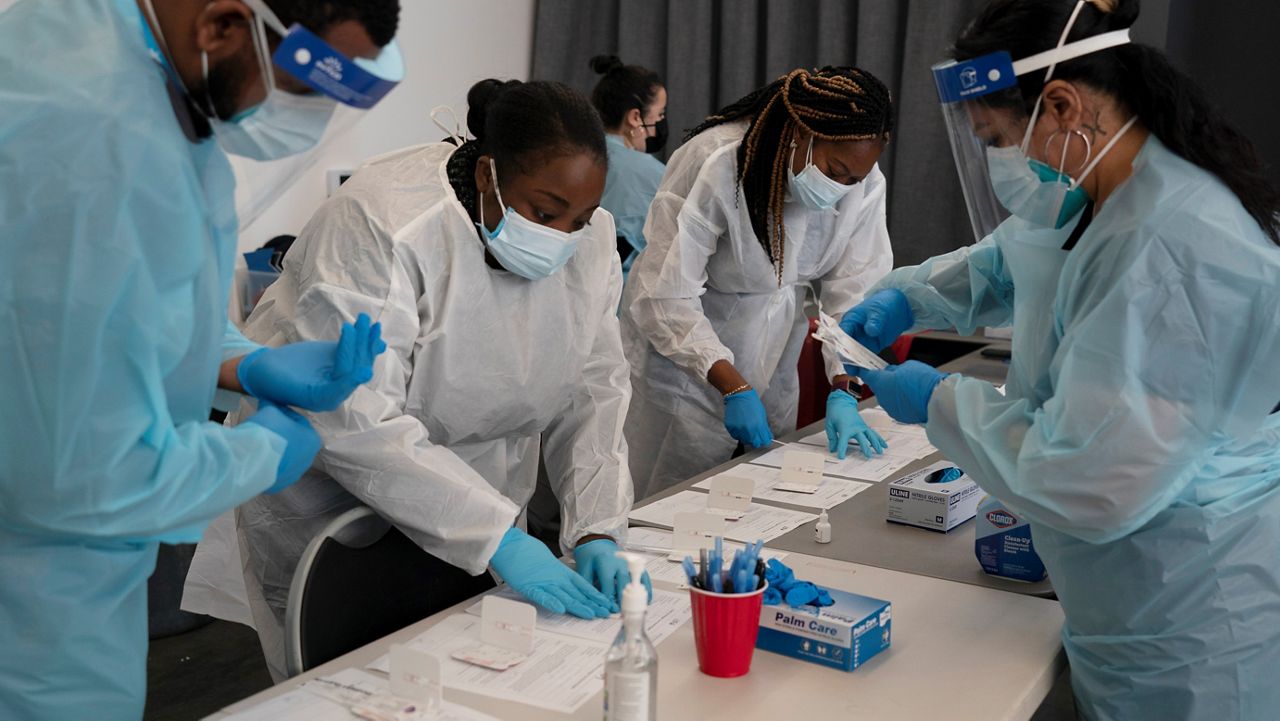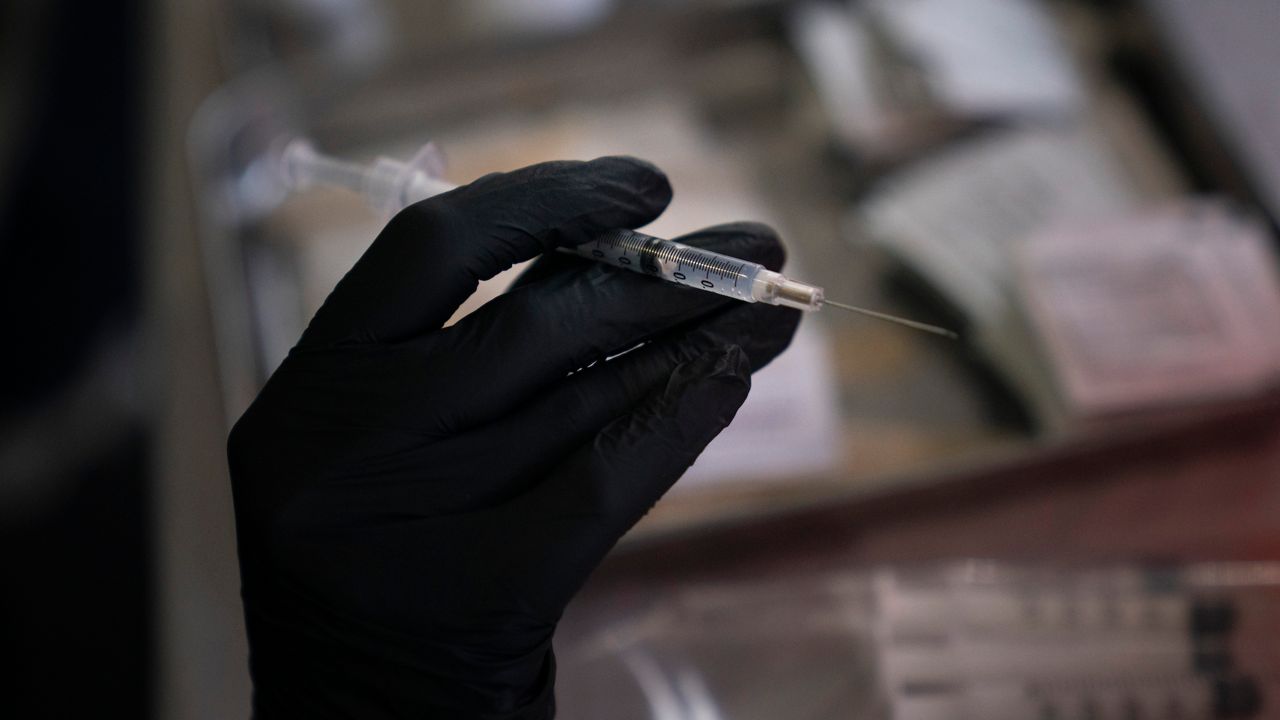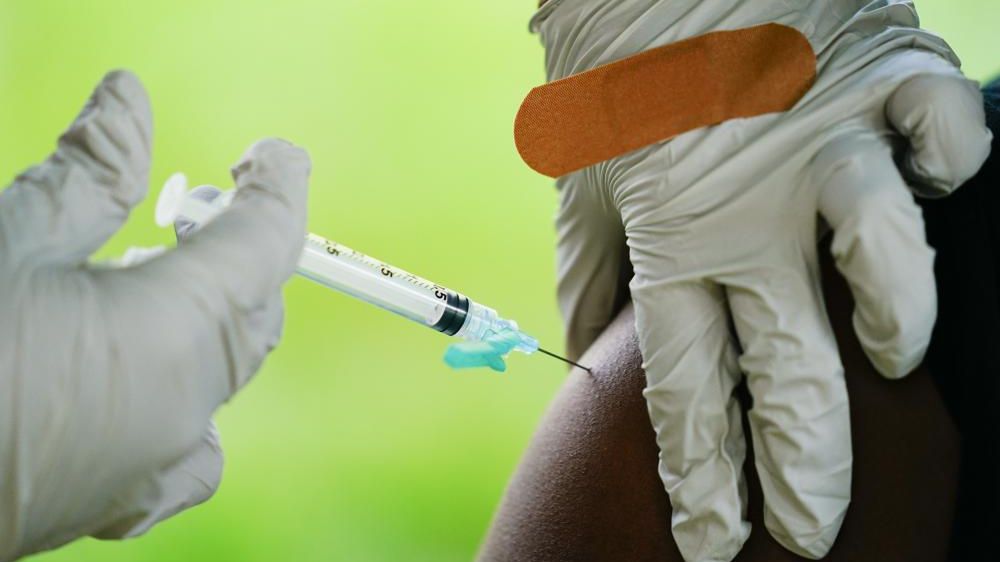RALEIGH, N.C. — With Coronavirus cases increasing, health experts and officials are urging more watchfulness.
The more-transmittable BA.5 is now the dominant variant in North Carolina
Officials are urging viligance in combatting the virus and using tools, such as masking, testing and vaccines
Nearly half of North Carolina's counties are labeled as high COVID-19 communities
On Thursday morning, the White House announced President Joe Biden tested positive for the virus. Biden is experiencing "very mild symptoms" and has begun taking Paxlovid, Pfizer's antiviral COVID-19 treatment.
The BA.5 variant of COVID-19 is now the leading cause of cases in North Carolina, the Office of Governor Roy Cooper announced this week.
Forty-one of North Carolina’s counties have been labeled as high COVID-19 community levels, recent data from the Centers for Disease Control and Prevention shows.
According to the N.C. Department of Health and Human Services, the BA.5 variant is more transmissible and “causing repeat infections, even in those who have recent past infections from other variants, and infections in people who are vaccinated.”
A look at the N.C. DHHS website shows there were about 22,000 new COVID-19 cases reported over the span of a week from July 10 to July 16. The percent positive was fluctuating around the 20% mark last week, which is well above the more safe, and desired, 5%. Hopitializations dropped off in the spring with only a few hundred patients statewide. Now, the number is at least 1,000 for North Carolina, according to data from the week of July 10.
State health officials urge residents to protect themselves by continuing to stay up to date on vaccinations and boosters as these remain highly effective in preventing severe outcomes that include hospitalization and death from COVID-19.
“While COVID variants continue to infect people, we have the tools to protect ourselves from the most serious effects of this virus,” Cooper said“While COVID variants continue to infect people, we have the tools to protect ourselves from the most serious effects of this virus,” Cooper said in a release Tuesday. “Get vaccinated and boosted, wear a mask indoors in crowds if you believe you need better protection and if you become infected, talk with a health professional quickly about effective treatments like Paxlovid. Cases are on the rise with this latest BA.5 variant so I encourage all North Carolinians to know their risk and take steps to protect themselves.”
The following tips and information can help you prepare:
- Getting your booster (Spanish) if you haven’t yet and by getting your second booster if you’re eligible
- Having a supply of at-home tests on hand. Stop the spread by testing more often and taking precautions if you are positive
- Free at-home tests are available from the federal government and community sites and your insurance will cover eight free at-home tests per person per month. Find other testing locations and ways to receive at home tests at covid19.ncdhhs.gov/FindTests (Spanish)
- Having a plan on how to seek treatment if you test positive. Find out now where treatment options are near you: covid19.ncdhhs.gov/FindTreatment (Spanish)
- Adding a layer of protection by wearing a mask in crowded indoor settings or if you are at high risk for serious COVID-19 complications
- Increasing the ventilation of indoor spaces by opening windows
“North Carolinians know how to batten down the hatches and get prepared when hurricanes approach. When COVID-19 case counts are rising, it’s especially important to protect yourself,” NCDHHS Secretary Kody H. Kinsley said. “We know what to do now. It’s time to make sure you are boosted, make sure you have tests on-hand at home and make sure you know where treatment options are near your home.”
Kinsley sat down with Spectrum News 1 Wednesday and discussed where the state stands on combating the virus, and he stressed the importance of wastewater testing.
“I think we exchange about this. No. 2 is really our No. 1 metric right now,” he said, poking fun at the source.

Wastewater allows the state to capture an inescapable metric.
“But as far as managing the course of a disease, testing is not our strongest tool right now. It is really wastewater surveillance, it is individuals that show up at emergency departments with COVID-19, these indicators where we really understand the whole picture,” Kinsley said.
He also stressed the importance of reaching into the toolbox and using the familiar things people have to fight against the virus, like masking and other protective equipment, vaccines, testing and treatment.
“We’re going to continue to monitor the situation. If those tools become ineffective or we don’t have them, then we have to try a different strategy. But right now that strategy of being prepared is really where we are,” he said.
Many people dropped their guards with COVID-19 safety measures in the spring as cases waned, and even masking while traveling become optional for most. But with cases ramping back up, viligiance is the order of the day from public officials and health care providers.
Justin Pryor - Digital Media Producer
Justin is a Charlotte-based digital media producer. He is a South Carolina native who worked in similar roles at a Charlotte TV station before joining Spectrum News 1 in 2019. Justin is a graduate of the University of South Carolina.








